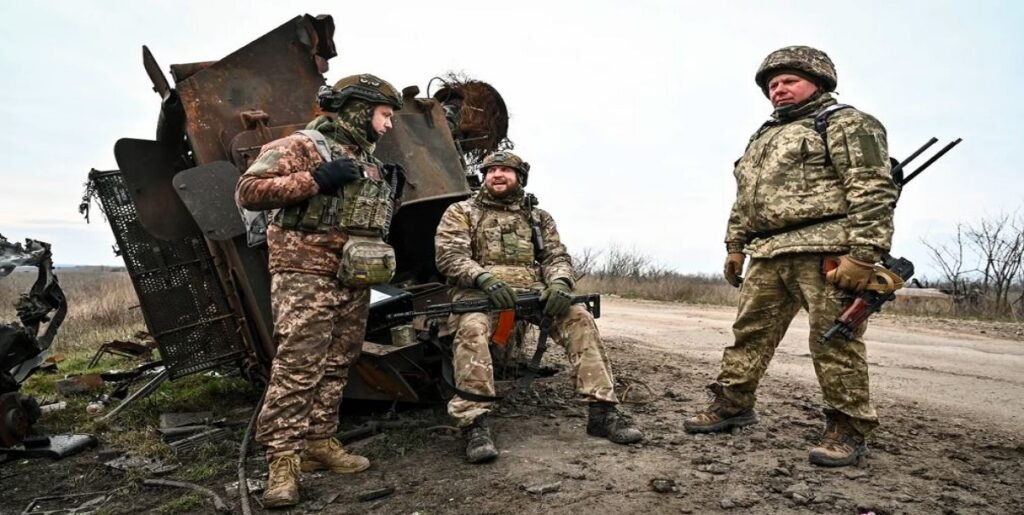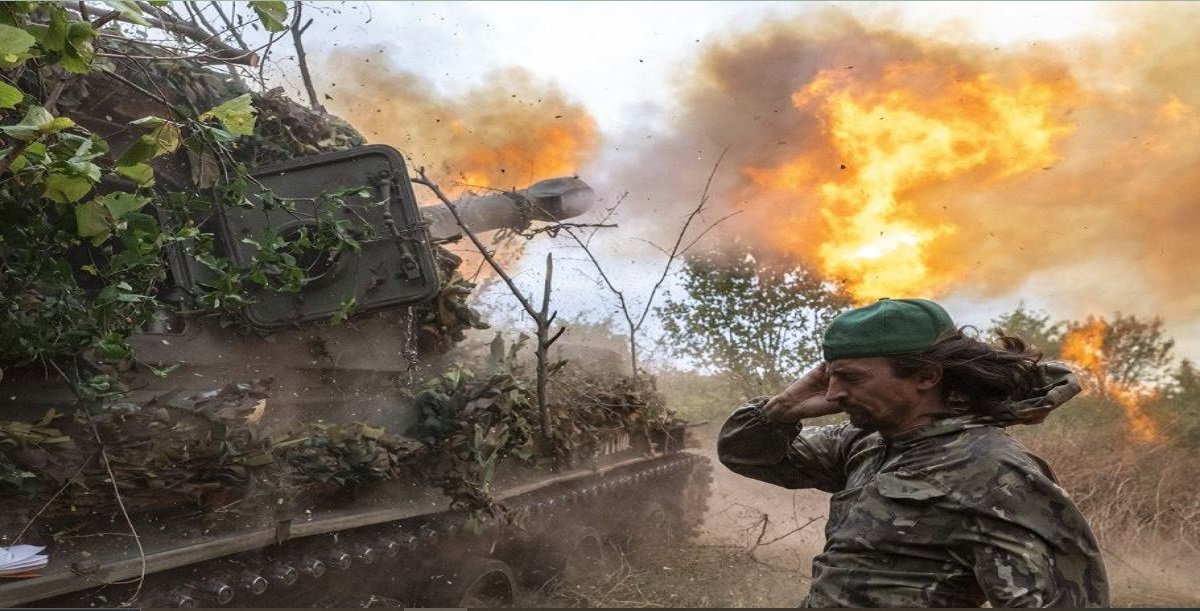The ongoing conflict between Russia and Ukraine has captivated global attention since its escalation in 2022. This war has many layers—geopolitical, economic, and social—but it also evokes memories of historical battles that have shaped the region. One significant reference point is the Battle of Kursk during World War II, which took place on Ukrainian soil. The “Russian Ukraine War Kursk” connection can help us understand the current military strategies and the symbolic meaning behind specific battle zones in the modern conflict.
In this article, we will explore the significance of Kursk in both historical and modern contexts. We’ll delve into the lessons that can be drawn from the World War II battle and examine how this region continues to play a strategic role in the Russian-Ukraine war.
Understanding the Battle of Kursk: A Historical Overview
To truly grasp the significance of Kursk in the modern Russian-Ukraine conflict, we must first understand its history. The Battle of Kursk, fought in July and August of 1943, was one of the largest tank battles in history and a turning point in World War II. The Soviet Union, with its superior numbers and strategy, successfully halted the German offensive, marking a decisive victory for the Allies.
Key Aspects of the Battle of Kursk:
- Scale: The Battle of Kursk involved nearly 3 million soldiers, 8,000 tanks, and 5,000 aircraft. The massive scale of this battle demonstrated the importance of the Kursk region as a strategic point.
- Tactics: Soviet forces used a defensive strategy, relying heavily on fortified positions and anti-tank defenses. This approach overwhelmed the German forces, which suffered significant losses.
- Outcome: The Soviet victory at Kursk not only weakened the German army but also boosted Soviet morale, shifting the momentum of the war in favor of the Allies.
While Kursk was a symbol of Soviet strength and resilience, its geographic location continues to hold strategic value. The city of Kursk is near the Ukrainian border, and its proximity has once again thrust it into the spotlight in the context of the Russian-Ukraine war.
The Russian Ukraine War Kursk Connection
The Russian Ukraine war has brought many regions and cities into the fold of intense conflict, and Kursk is no exception. While the city has not been a direct battlefield in the same manner as Donetsk or Kharkiv, its strategic location and historical significance cannot be overlooked.
Geopolitical Importance of Kursk
Kursk, located just north of the Ukrainian border, holds significant strategic importance for several reasons:
- Military Infrastructure: The region has been used as a military hub for Russian forces. Its proximity to key Ukrainian cities makes it a launching pad for military operations.
- Supply Routes: Kursk’s transportation and railway networks are vital for the movement of troops, weapons, and supplies. The ability to control or disrupt these routes could greatly affect the war’s progress.
- Symbolic Significance: For Russia, the legacy of the Battle of Kursk during World War II adds a layer of national pride and historical narrative to its actions in the present conflict. By drawing parallels to past victories, Russia may be attempting to invoke a sense of continuity and legitimacy in its military endeavors.
Military Engagement in the Kursk Region
Though Kursk has not witnessed the same level of devastation as cities like Mariupol or Bakhmut, it has not been immune to the impacts of the war. There have been reports of sporadic shelling and drone attacks in the region, targeting Russian military installations and infrastructure. These attacks suggest that Ukraine recognizes Kursk’s strategic value and aims to disrupt Russian operations emanating from the area.
Modern Warfare in the Shadow of Historical Battles
The “Russian Ukraine War Kursk” connection goes beyond geographic proximity; it is also symbolic. Both sides of the conflict may draw lessons from the Battle of Kursk in World War II, particularly in terms of military tactics and strategy.
Key Lessons from the Battle of Kursk:
- Defensive Fortifications: Just as the Soviets fortified their positions in 1943, modern warfare in Ukraine has seen the extensive use of trenches, anti-tank defenses, and fortified positions. These defenses play a crucial role in slowing the advance of enemy forces.
- Armored Warfare: The Battle of Kursk was notable for its large-scale tank battles. In the current conflict, both Russia and Ukraine have deployed tanks, though the nature of modern armored warfare has evolved with the use of drones, anti-tank missiles, and air support.
- Psychological Warfare: The Battle of Kursk demonstrated the importance of morale and psychological resilience. For Ukraine, defending its territory against Russian advances is not just a military struggle but also a battle for the hearts and minds of its people. Likewise, Russia may attempt to invoke historical narratives of Soviet victory to bolster domestic support for the war.
The Role of Kursk in Russia’s Narrative
For Russia, Kursk is more than just a strategic location; it is a symbol of past victories and military prowess. The Kremlin has frequently drawn on the legacy of World War II to justify its actions, framing its invasion of Ukraine as part of a broader struggle against what it perceives as Western aggression. The “Russian Ukraine War Kursk” connection allows Russia to tap into a deep well of historical memory, positioning itself as the successor to the Soviet Union’s fight against fascism.
This narrative serves two purposes:
- Domestic Legitimacy: By invoking the memory of Soviet victories, Russia seeks to rally public support for the war. The Battle of Kursk, in particular, is a symbol of Soviet resilience, and its legacy is used to inspire nationalism.
- International Messaging: On the global stage, Russia may use the historical context of Kursk to position itself as a defender of its interests against NATO and Western influence. By drawing parallels between World War II and the current conflict, Russia attempts to legitimize its military actions in Ukraine.
The Future of the Russian Ukraine War and Kursk’s Role
As the war drags on, the role of Kursk may become even more pronounced. Ukraine has demonstrated a willingness to strike targets deep within Russian territory, and Kursk’s military infrastructure could become a prime target for future operations. Conversely, Russia’s use of Kursk as a staging ground for further offensives could escalate the conflict, drawing more attention to this historically significant region.
The “Russian Ukraine War Kursk” dynamic is one that blends past and present. As both sides seek to control the narrative and territory, the lessons of history will continue to inform the strategies of the future.

FAQs
Kursk was the site of one of the largest tank battles in history during World War II. The Soviet victory at the Battle of Kursk marked a turning point in the war, weakening the German army and shifting momentum in favor of the Allies.
Kursk is strategically important due to its proximity to the Ukrainian border. It serves as a military hub for Russian forces, and its transportation networks are crucial for moving troops and supplies. The region has also been the target of drone strikes and other military operations.
While Kursk has not experienced the same level of destruction as other regions, it has been affected by sporadic attacks. The city’s military installations and infrastructure have been targeted by Ukraine in efforts to disrupt Russian operations.
The tactics used in the Battle of Kursk, such as defensive fortifications and large-scale armored warfare, have parallels in the modern conflict. Both sides have used trenches, anti-tank defenses, and tanks, though modern warfare also includes drones and advanced missile systems.
For Russia, Kursk represents a historical victory that is deeply embedded in national pride. By invoking the memory of the Battle of Kursk, Russia seeks to frame its actions in Ukraine as part of a broader struggle against Western influence, drawing on Soviet-era narratives to justify its military efforts.
Read more



